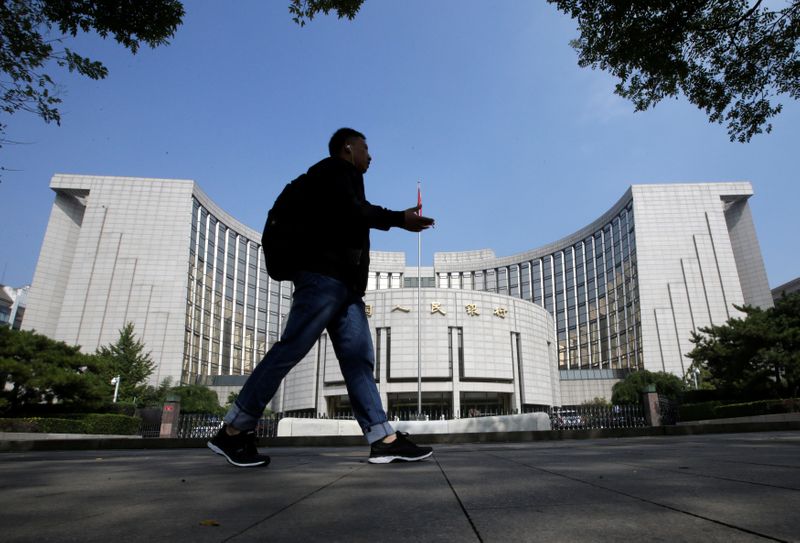By Judy Hua and Kevin Yao
BEIJING (Reuters) - New bank loans in China rose more than expected to a record high in January, as authorities step up support for an economy hit by trade tensions and facing a new threat from a fast-spreading coronavirus outbreak.
Chinese banks tend to front-load loans at the beginning of the year to get higher-quality customers and win market share.
Banks extended a record 3.34 trillion yuan ($476.42 billion) in new yuan loans in January, up from 1.14 trillion yuan in December and exceeding analyst expectations, according to data released by the People's Bank of China (PBOC) on Thursday.
Analysts polled by Reuters had predicted new yuan loans would rise to 3.00 trillion yuan in January, compared with the prior record 3.23 trillion yuan a year earlier.
Household loans, mostly mortgages, fell to 634.1 billion yuan in January from 645.9 billion yuan in December, while corporate loans rocketed to 2.86 trillion yuan from 424.4 billion yuan, according to Reuters calculation based on central bank data.
Chinese regulators have been trying to boost bank lending and lower financing costs for over a year, especially for smaller and private companies which generate a sizeable share of the country's economic growth and jobs.
Growth in the world's second-biggest economy slowed to 6.1% in 2019, the weakest pace since 1990, as demand at home and abroad slowed in part due to the Sino-U.S. trade war.
On Thursday, the PBOC cut the benchmark lending rate - the loan prime rate (LPR), as the authorities move to lower financing costs for businesses and support an economy hit by the coronavirus epidemic.
Broad M2 money supply in January grew 8.4% from a year earlier, central bank data showed on Thursday, below estimates of 8.6% forecast in the Reuters poll. It rose 8.7% in December.
Outstanding yuan loans grew 12.1% from a year earlier compared with 12.3% growth in December. Analysts had expected 12.1% growth.
MORE POLICY STEPS EXPECTED
Policy sources have told Reuters the government plans to roll out more support measures as the coronavirus epidemic, which has killed more than 2,100 people and infected over 74,000, is expected to have a devastating impact on first-quarter growth.
Annual growth of outstanding total social financing (TSF), a broad measure of credit and liquidity in the economy, stood at 10.7% in January, unchanged from in December.
TSF includes off-balance sheet forms of financing that exist outside the conventional bank lending system, such as initial public offerings, loans from trust companies and bond sales.

In January, TSF jumped to 5.07 trillion yuan from 2.103 trillion yuan in December. Analysts polled by Reuters had expected January TSF of 4.3 trillion yuan.